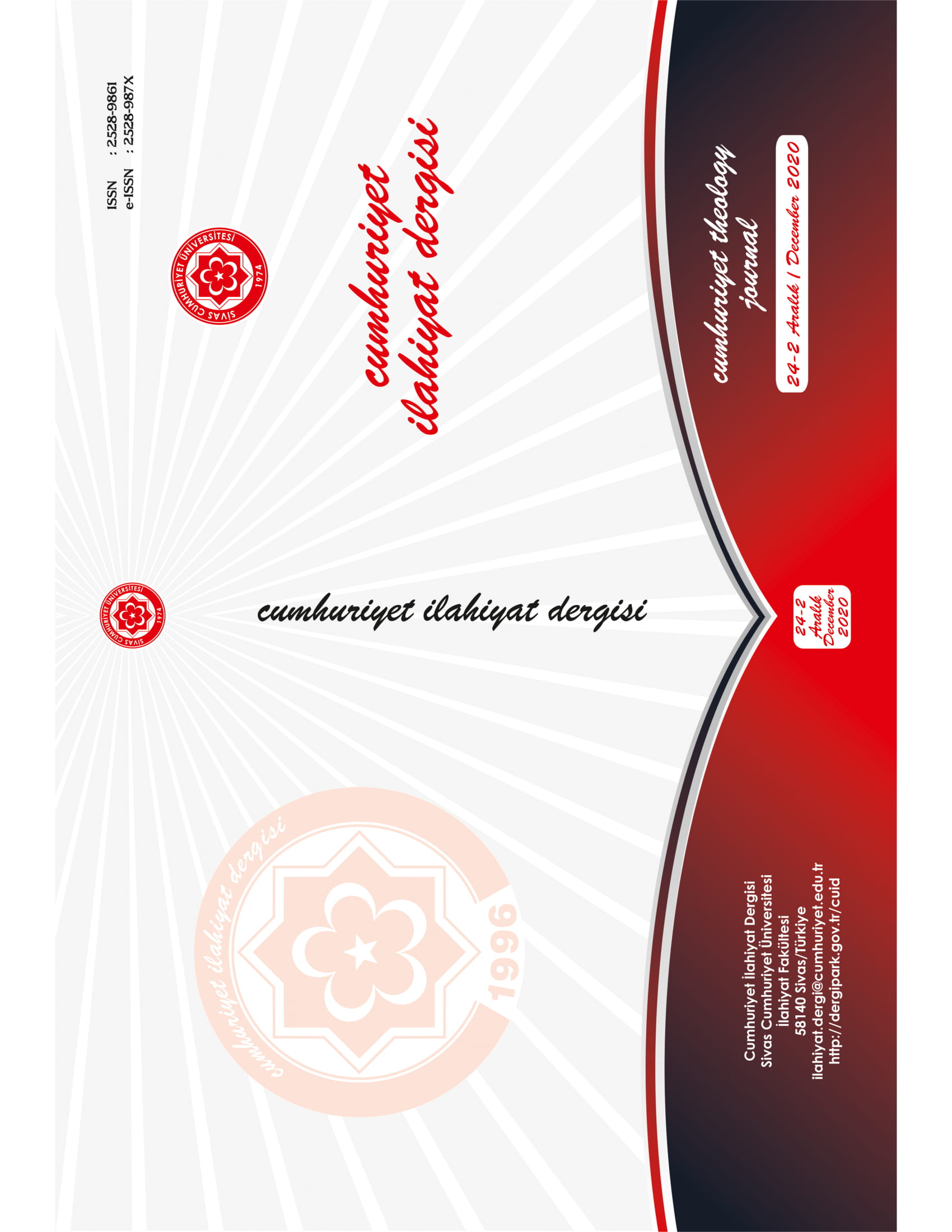Din Eğitiminde Sahih İletişimin İmkânı: Martin Buber Ekseninde Kuramsal Bir Öneri
Opportunity of Authentic Communication in Religious Education: A Theoretical Proposal on the Axis of the Martin Buber
Author(s): Ali ÖncüSubject(s): Education, Theology and Religion
Published by: Cumhuriyet Üniversitesi İlahyat Fakültesi
Keywords: Religious Education; Martin Buber; Religious Communication; Teacher-Student Relationship; I-You Relationship; Reciprocity:
Summary/Abstract: Religious education is a communication process between teacher and student. Martin Buber is one of the philosophers who attach importance to the communication and relationship that should be established between teachers and students in education. In Buber's dialogue philosophy, it is underlined that a reciprocal relationship should be established between teacher and student. Our study from this point aims to draw attention to the efforts of a sound communication opportunity between teacher and student in religious education in the light of Martin Buber's thoughts. In this study designed as a qualitative research, the document analysis method was used. In this sense, the main theme of our study is Buber's books and articles translated into Turkish and English. Besides, the studies of Cohen, Friedman, Blenkinsop, and Boschki have also been studied. The relationship of the individual with the world in Buber's philosophy of dialogue takes place in two styles. The first is the I-S/He relationship style. The person who has this level of a relationship sees the world as an object to be experienced only for himself/herself. For this reason, there is no reciprocity in their relations and experience takes place within the individual. According to Buber, the second type of relationship is based on the I-You perspective. The individual who has this form of relationship makes the world meaningful in an open, sincere, and mutual relationship. In the education based on I-S/He behavior style, the teacher has a one-way relationship with students, which is not based on reciprocity. In this process, the teacher focuses more on the subject the student will tell. Buber criticizes this kind of education, which is avoided and not related to the student. According to Buber, education should be done according to the I-You behavior style. In this way, it is possible to realize the unique existence of the child and to unite with his/her inner and outer world with the power of mutual relationship and participation. In order for the learners to establish a sound relationship with the world in general and religious and moral phenomena in particular, the learners should be in contact with religious educators in the first place. In religious education, it is necessary to establish a relationship by the teacher in which religious beliefs and values are not imposed on the student and the authenticity of a student is respected. This relationship is only possible if the student trusts the teacher and knows that the teacher is really with him/her in person. The religious educator should provide the learner with real experiences that s/he can experience and feel and should be able to follow the inner world and thoughts of the learner in this process. In this context, it is necessary to turn onto the reality, problems, and needs of the period in which students live more than the future and adulthood. The tradition should be handled as a living organism that touches the student's life, not in the form of dull, finished events and stories, and focused more on principles and messages than events and people. As a result, education should aim not only to improve cognitive development and creativity but also to develop and excel in all aspects of the person. For this reason, emotional and social phenomena should be a part of religious education. The best way to include emotional and social phenomena in religious education lies in the relationship between teachers and students. For this reason, we think that it is necessary to concentrate more on relations theoretically between religious educators and learners. In fact, we also aim to remove the issue of communication from a technical issue and place it in an ontological issue perspective. This study aims to be a humble beginning for these purposes.
Journal: Cumhuriyet İlahiyat Dergisi
- Issue Year: 24/2020
- Issue No: 2
- Page Range: 645-664
- Page Count: 20
- Language: Turkish

